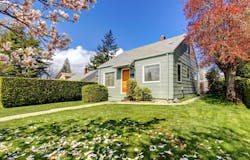Entry-Level Homes Are a Reach for First-Time Buyers
Starter homes—traditionally the entry point for first-time buyers—are now often out of reach for first-time buyers due to bidding wars and fast-rising prices in a market where median home list prices have surged 38%, mortgage rates have doubled, and the housing shortage has worsened over the last four years.
The price of an "affordable" starter home has shifted from below $200,000 to closer to $400,000, according to Realtor.com, making homeownership a luxury rather than a real possibility for many Americans. In turn, that delayed entry into homeownership can affect long-term wealth-building, and today's buyers face higher costs and difficulties saving for down payments down the road, further exacerbating an ongoing affordability crisis.
By general consensus, just a few years ago, starter homes were generally defined as costing below $200,000. Today, they’re generally closer to $400,000, says Ali Wolf, chief economist of building consultancy Zonda. Buyers who don’t earn more than the median income in their area often can’t afford them.
“For people who haven’t already purchased a home, the chance of becoming a homeowner has gotten a lot harder,” she says. “A starter home may not be within reach for many Americans.”
In January 2019, households earning below $75,000 could afford about half of the homes on the market, according to the Urban Institute, a think tank. Four years later, they could afford just 25%.
